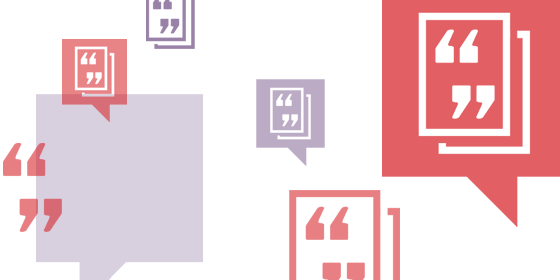Tags: Decision-making, Code of Ethics
IBE’s Associate Director, Prof. Chris Cowton, reflects on the role of ethical decision-making models, the subject of our latest research report.
Our latest research report examines the ethical decision-making models that are included in some companies’ codes of ethics. These models support employees to make a good decision when existing policies and the code itself provide insufficiently clear guidance, which is always going to happen from time to time in a complex and dynamic business environment.
Focused on the FTSE 100, our desk research found that 88 companies had a publicly available code of ethics, of which 27 – or almost a third – included a decision-making model. So, a proportion of the UK’s leading companies provide a model, but many more could consider developing one to support their employees to behave ethically.
At the heart of any ethical decision-making model is a set of questions, which can vary in number and range in presentation from a simple list in the code’s standard font to a flow diagram or decision tree with attractive graphical design elements.
When analysing the details of the models, we came across a wide variety of questions that employees are prompted to consider when considering what course of action to take. Most of the questions could be classified into the following categories:
- Legality
- Consistency with the company’s policies, values, etc
- Outside world’s view
- Significant others’ view
- Personal view
- Setting an example
- Stakeholders and impact
You can read the report for an explanation of the categories and see plenty of examples there. For now, though, I want to think about the models in the context of a couple of things that I’ve noticed over the years when talking to people about ethical decision-making.
First, people often seem to imagine that, when faced with an ethical dilemma, they will need to make a choice there and then. Now, I’m not advocating procrastination. However, we know that speed – so often the key to efficient business behaviour – is the enemy of sound ethical judgement. Working through a list of questions helps us to slow down. The IBE’s own ethical decision-making model is aptly named ‘Stop and Think’.
Of course, it’s possible that some people will use a model as a simple tick-box exercise. If so, that’s a shame, because the value of a model lies not in getting to an answer as quickly as possible, but in the quality of the thinking that is prompted by it. There are, however, some common features of models that can help to slow us down.
For example, there are often questions that ask the user to check whether a proposed action is meeting the requirements of the law and regulation and is consistent with the company’s policies, values, etc. To answer such questions will often necessitate looking up information or checking with someone. Some models also remind users that they might want to gather or check other factual information relating to the decision.
Then there are other questions that can help to slow things down in a different way. We know from research into decision-making that we are prone to rationalising our actions, rather than thinking critically about them. However, our research identified questions in models that can help to ‘bring us up short’ by triggering an emotional reaction. The focus of such questions included the possible impact of the proposed action on the company’s reputation and whether the user would feel comfortable if the media or – closer to home – family or friends knew. Perhaps by bringing on hints of embarrassment or shame, such questions can give us real pause for thought.
If I were, to sum up how decision-making models can slow us down, just a little bit, to help increase the likelihood that we come to a sound ethical judgement, it is that they invite us to take a walk around the dilemma, viewing it from several different angles.
But we don’t need to walk alone – which is the second assumption that I often find people make when imagining that they’re confronting an ethical dilemma. Other people’s insights, particularly when they have diverse backgrounds and perspectives, can be a valuable input to forming an ethical judgement. Sometimes we are nervous when talking to others about ethics, and conversations about ethics can often simply be the sharing of opinions, polite or otherwise. However, having a model can help to take the stress out of ‘talking ethics’ by breaking the issue down into a set of straightforward questions to which all can contribute where they are able, rather than thinking that they need to be able to voice, and justify, their own answer to the big question, ‘is it ethical?’.
In conclusion, an ethical decision-making model doesn’t replace the decision-maker, but it helps to slow them down and guide them through a process towards a sound ethical judgement; and it also provides them with a framework for getting ‘a little help from their friends’. If your company doesn’t yet have such a model, or you want to check your existing one, you should find the analysis and examples in our research report provide plenty of food for thought.
Download the report....
Author

Professor Chris Cowton
Associate
Chris served the IBE as part-time Associate Director from 2019 to 2023, having previously been a Trustee. He continues to contribute to our work from time to time as an Associate.
Chris originally joined the IBE staff following a long career of leadership, research and teaching in the higher education sector. He is Emeritus Professor at the University of Huddersfield, where he served as Professor of Accounting (1996-2016), Professor of Financial Ethics (2016-2019) and Dean of the Business School (2008-2016). He moved to Huddersfield after ten years lecturing at the University of Oxford. He has also been a Visiting Professor at Leeds University’s Inter-Disciplinary Ethics Applied Centre, the University of Bergamo (Italy) and the University of the Basque Country, Bilbao (Spain).
He is internationally recognised for his contributions to business ethics, especially his pioneering work on financial ethics. He was elected a Fellow of the Academy of Social Sciences in 2025. In 2013 he was awarded the University of Huddersfield’s first DLitt (Doctor of Letters, a higher doctorate). He is also a recipient of the British Accounting and Finance Association's Life-time Achievement Award.
He is the author of more than 70 journal papers, has edited three books and has written many book chapters and other publications. He served 10-year terms as Editor of the journal Business Ethics: A European Review (2004-2013) and as a member of the Ethics Standards Committee of the Institute of Chartered Accountants in England and Wales (2009-2018). He continues to write extensively and to speak to both academic and practitioner audiences.

